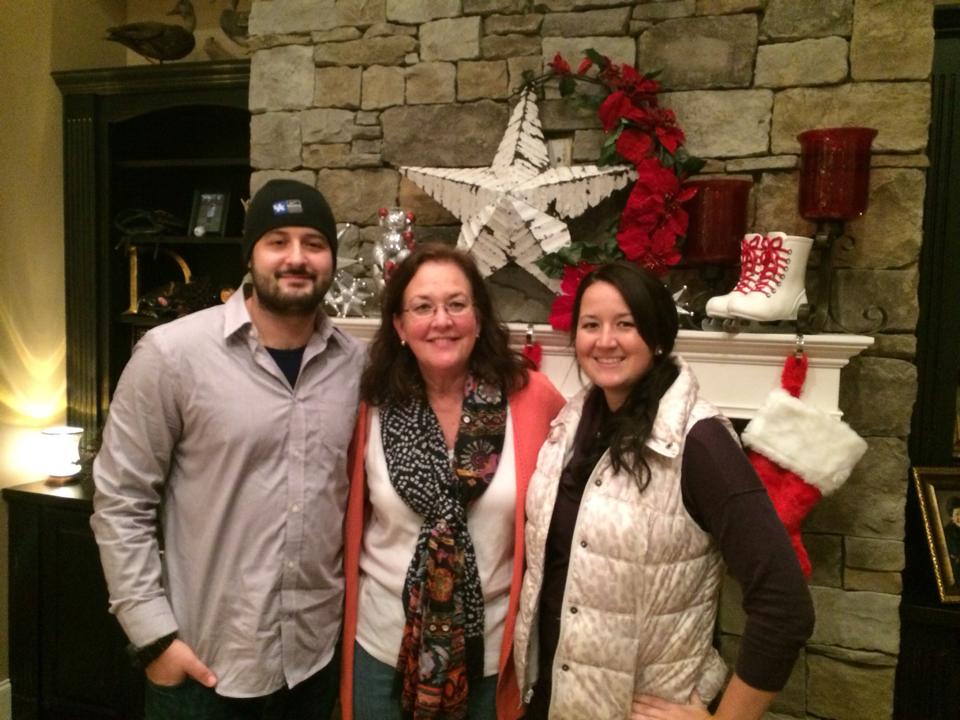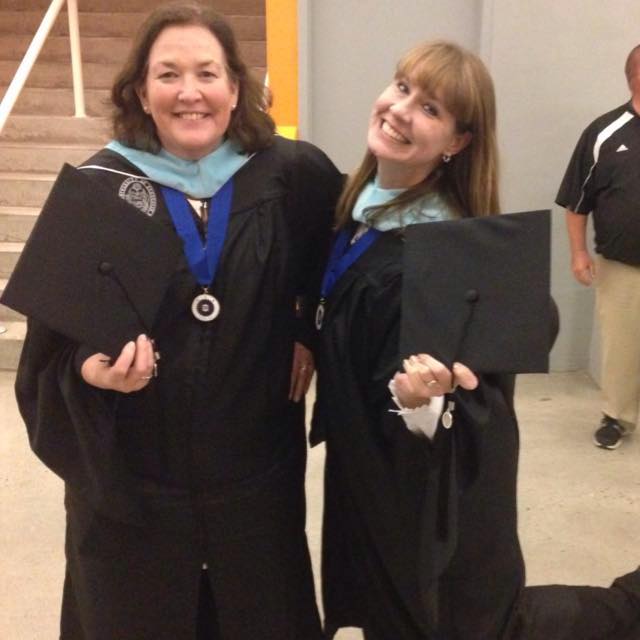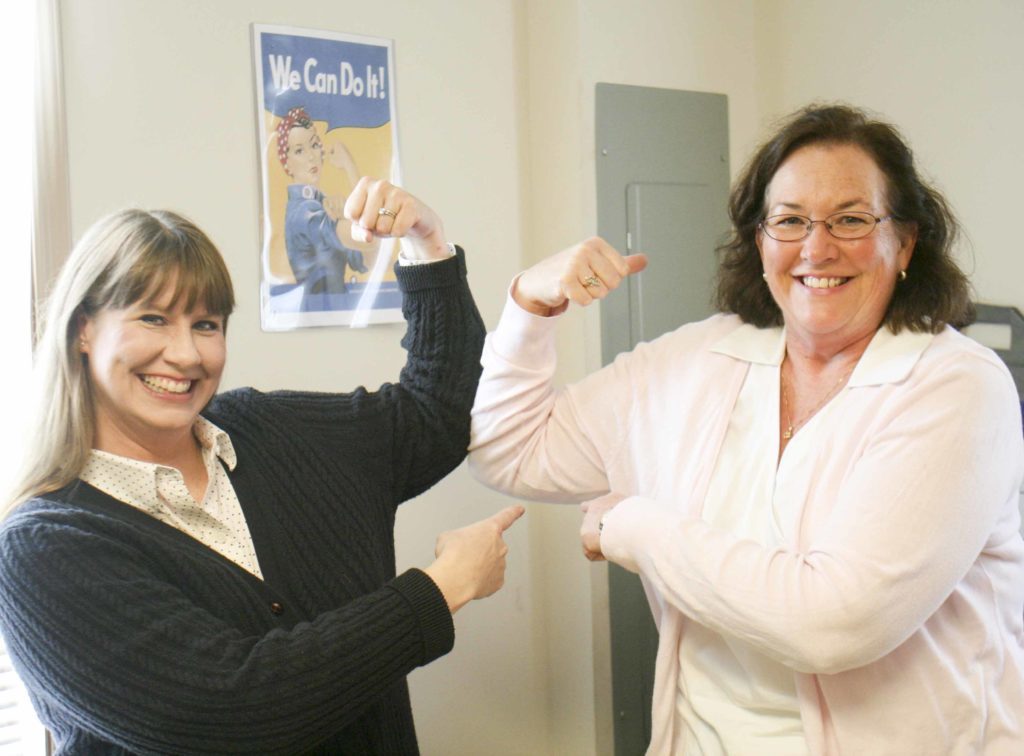Adult Education
Linda earned an MS in educational psychology with a concentration in the Adult Education program in 2015. Originally from Cleveland, TN, she now lives in Chattanooga, TN. We asked her to reflect on past experiences with EPC and discuss where she’s at now. Read her responses below.
Current Occupation
Assistant to the Dean of the College of Arts & Sciences
The University of Tennessee at Chattanooga
Chattanooga, TN
I support the efforts of the staff, faculty, and students of the College of Arts and Sciences in a variety of roles.
Awards and Accomplishments Earned as a Student
While in the program, I was honored to receive nominations for membership to Phi Kappa Phi National Honor Society and Gamma Beta Phi National Honor Society.
Accomplishments since Graduating
This semester finds me in a new role – college professor – as I am teaching as an adjunct at both UTC and Chattanooga State. My course at UTC is a First Year Experience class, which is aimed at helping first year students acquire the tools needed to successfully transition to college life. My course at Chattanooga State is an online section of Educational Psychology, and I am thrilled to be able to have an impact on students who aspire to be teachers. I have always wanted to teach and, now, thanks to my time in the program at UT Knoxville, I have the credentials, knowledge, and experience to revel in the accomplishment of this long-held goal.
Personal Interests
In my free time, I enjoy reading, expanding my culinary skills, and putting my Netflix subscription to good use watching movies and catching up on those TV series I missed while in school. I also enjoy spending time with my family and friends and getting some exercise walking Daga, my German Shepherd.
What sold you on this program/department/university?
After going back to school and finishing up my undergraduate degree in psychology when my youngest child went off to college, I felt that there were other educational endeavors to be explored and conquered, so I started examining possibilities. The EdPsych Online MS degree program at UT met all of my requirements. It combined both my field of work and my undergraduate field of study; it was online, so it was easily accessible; with my fee waivers as a UTC employee, the expense did not create a stumbling block; and the curriculum looked diverse and challenging. It was a great decision.
What was the most memorable experience during your time here?
While I had many wonderful experiences over the span of my two years in the program, some stand out more than others. Overall, the two courses I had spring semester of 2015 combined together to make the best learning experience of my life.
I had Survey of Adult Education with clinical assistant professor, Cathy Hammon, and we studied thought leaders, pros and cons, and key ideas of each of the seven philosophies of adult education. I came out of this course feeling a true scholar of adult education.
My other course that semester was Program Development and Operations with professor emerita, Mary Zeigler. The highlights of this course revolved around developing a new educational program from the ground up and learning about the amazing life of Myles Horton and the life-changing work done at the Highlander Folk School. And, yes, there was a field trip. Over half of our online class made time, on a Saturday, to travel to New Market, Tennessee for a day of work and conversations at the Highlander Research and Education Center.
What would you tell an incoming/current student in the program/department?
Some important thoughts I would like to offer:
- Discard all of your preconceived notions of online classes because these are designed to allow for the benefits of sitting in an actual classroom with your colleagues and professors while in any variety of settings.
- Learn your APA Manual forwards and backwards and make it your friend.
- Share your strengths with your classmates and allow their strengths to buffer your weaknesses, especially during group work (and there will be plenty of that).
- Be an active and engaged participant in the learning communities of your classes because you share in the responsibility for not only your learning, but your classmates’ learning as well.
- It’s OK that you don’t know what you don’t know—everything will fall into place along the way.
- Reflection is one of the strongest learning tools you have at your disposal, so do it often.
- Walk at graduation. You worked hard and deserve the pomp and circumstance.
“I would like to take this opportunity to acknowledge all of the wonderful people who made my grad school experience such a life-changing experience. The administration and staff who serve as the backbone of program were friendly and always readily available. I never had to wait long for a call or returned email. The professors shared their wisdom and demanded high-quality effort in an encouraging and accepting environment. They provided me with a vision of what I want to be as a teacher. My classmates grew from comrades in arms to good friends. I look forward to following where their lives go in the future. Finally, I need to give a shout out to my good friend and colleague Susan Long. We applied to the program together and spent most class nights over two years sitting together in an office or study room in the library at UTC with our laptops and a stash of treats. We shared the ups and downs of graduate school and talked each other off the ledge more than once. I know the experience was richer and definitely more entertaining because of her.”



